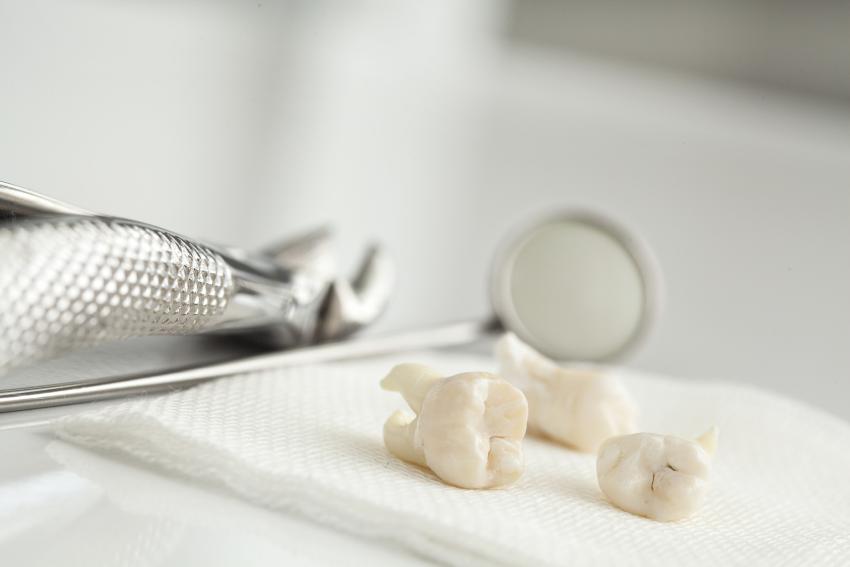Did you know that in some sharks, a new set of teeth develops every two weeks?
Most of us go through life with just two sets of teeth; the milk teeth we grow in childhood, which are then replaced with our adult teeth. However, for many of us, this isn’t quite the end.
Between the ages of around 17-25, you may find up to four additional teeth making an appearance. These are wisdom teeth.
These extra teeth aren’t always welcome, however. Wisdom teeth can cause some serious issues and may need removal.
Read on as we take a look at ten things you should know about wisdom tooth extraction.
1. What Are Wisdom Teeth?
As mentioned above, wisdom teeth are additional teeth that tend to appear in early adulthood, which is what gives them their name. They’re also known as third molars since they grow in behind your first and second molars.
These teeth are a throwback to when our ancestors had a diet of chewy plants and uncooked meat and had larger jaws that could easily accommodate these additional teeth. These additional molars would have helped to compensate for any teeth that had been lost.
2. Does Everyone Have Wisdom Teeth?
Wisdom teeth aren’t required any longer thanks to our modern diet being much easier to chew and it seems like evolution has caught on.
Around one in three people won’t develop wisdom teeth at any point. If you’re part of the two-thirds of people who do develop wisdom teeth then it may be the case that you’ll need to have one or more of them extracted at some point.
3. Why Are Wisdom Teeth Extracted?
There are a number of reasons why wisdom teeth may be extracted.
The cause could be completely unrelated to the type of tooth; it may be due to decay or damage just as with any other tooth in your mouth. However, one of the most common reasons for wisdom tooth extraction is impaction.
This is when the tooth becomes stuck under the gum or is only able to partially break through. This is common with wisdom teeth because often there is not really enough room in the jaw for a third molar to fit.
Wisdom teeth can also be extracted if they are growing at an angle putting pressure on other teeth.
4. What Problems Can Wisdom Teeth Cause?
Impacted wisdom teeth can cause a number of issues.
For many, an impacted wisdom tooth can cause a great deal of pain. A wisdom tooth growing at an angle can potentially damage a nearby tooth or the surrounding bone.
Wisdom teeth can also become traps for food and debris which can be difficult to remove since the teeth are so hard to reach. This leads to an increased risk of decay or gum disease.
5. Will Wisdom Tooth Extraction Hurt?
Removing a wisdom tooth isn’t the simplest process. It often requires making an incision in the gum and sometimes cutting away some of the bone around the tooth. That’s why for wisdom teeth removal anaesthesia is always used; this could be a local or a general anaesthetic.
Thanks to the anaesthesia, you won’t feel any pain during the procedure itself. If you’re wondering what to do before wisdom teeth removal, then it’s good advice not to eat too close to the time of the procedure, as general anaesthesia can cause an upset stomach.
6. How Long Does It Take?
No two wisdom tooth removals are alike.
There are a number of factors that can affect the length of the procedure, including how badly impacted the tooth is, how easy it is to access, whether the tooth is healthy or damaged, and many others.
For some people, the tooth may be extracted in a matter of minutes, for others it may take twenty minutes or more.
7. Will There Be Pain Following the Procedure?
Once the anaesthesia wears off, you may experience a little discomfort in the region where the tooth was removed. You shouldn’t experience any major pain, however.
If you do have some pain, you should be able to manage this with over-the-counter pain medication.
8. What About Bleeding?
Bleeding is one of the inevitable side effects of wisdom tooth extraction.
If your tooth was impacted, your dentist will have had to make an incision in the gum in order to uncover the wisdom tooth. This region will bleed in the immediate aftermath of the procedure; you may be given a gauze pad to place over the area to stop the bleeding and help a clot to form.
You may need to replace this pad a couple of times over the next few hours if the bleeding takes a while to stop.
9. Should I Rest After Wisdom Tooth Extraction?
Wisdom tooth extraction is a surgical procedure involving anaesthesia and potential blood loss. That’s why you should always take time to rest after the procedure.
You should aim to rest for the rest of the day, and definitely avoid any strenuous activity. It’s advisable to have someone who can drive you home after the extraction.
10. How Can I Speed Up Recovery?
Any discomfort or swelling should be gone within two or three days, but there are some steps you can take to speed up wisdom tooth extraction recovery.
An ice pack can help reduce any swelling around your jaw and can also relieve some minor pain. You should also drink lots of water, but avoid alcohol, caffeine, soda, or hot beverages for the rest of the day.
You should also aim to eat soft foods for the first 24 hours after the procedure. Smoking can also slow the healing process, so avoid this for the rest of the day if you can.
Do You Need Wisdom Tooth Extraction?
If you need wisdom tooth extraction then we’re here to help.
We offer the best possible dental treatment options in North York, Toronto, with a multilingual staff of dentists and dental professionals. We offer a wide range of services including teeth whitening, teeth cleaning, root canal treatment, and wisdom tooth extraction to name a few.
Schedule an appointment with us today!

